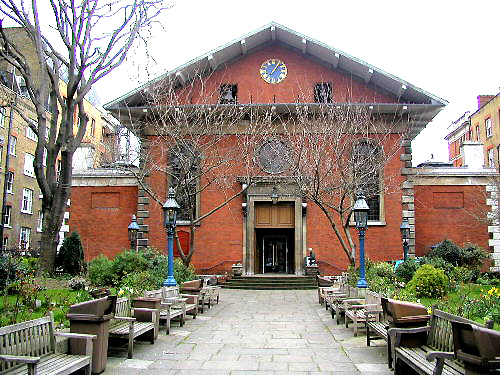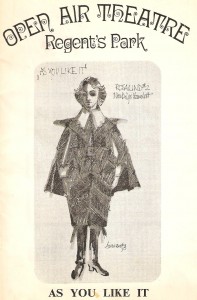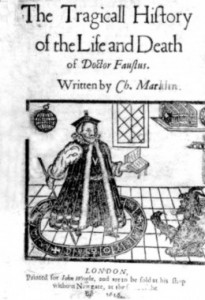Archive for the ‘Charming Men’ Category
Stephen Jenn, Sorceror
Stephen Jenn was an actor, a hero and my friend. Yesterday I went to his funeral.
It was in the Actors’ Church, St Paul’s in Covent Garden. Inigo Jones’s lovely building, one of Stephen’s favourite places, was full of spring light.
On his coffin there was rosemary for remembrance. So today I am remembering.
I saw Stephen act long before I knew him. He was Silvius, the romantic shepherd in As You Like It in the Open Air Theatre in Regent’s Park. I never forget the soft summer night, the heartbroken poetry, that wonderful voice. It got right into me, into the core and sinews of my imagination. And it’s still there.
Though, to be fair, it took me a while to realise that the Superior Being taking English Gentleman’s Tea at 4 o’clock on the dot was my heart-stopping shepherd. Stephen scoffed when I told him I’d seen him all those years ago. So, to prove it, I dived into my precious store of programmes of plays I really, really loved– and produced the evidence.
Stephen put aside his hot buttered toast, third cup of tea and umpty um years and turned into the young unrequited lover, telling the sophisticates around him ‘ what, ’tis to love’:
It is to be all made of fantasy.
All made of passion, and all made of wishes
All adoration, duty, and observance,
All humbleness, all patience and impatience,
All purity, all trial, all obedience,
And so am I for Phoebe.’
And yes, the Voice was still magic.
But then, I already knew about the Voice, whether he was Chatting to the Telephone Salesman (he scored if he got them to ring off first), persuading my nervous cat to have his tummy tickled, Rebuking Radio 4 (he wasn’t usually up for the Today programme but he would have a good old argument with PM, not to mention Front Row) or reciting poetry as he went about the house. More than once I went into the kitchen to find him telling the kettle sorrowfully:
Alas, ’tis true, I have gone here and there
And made myself a motley to the view,
Gored mine own thoughts, sold cheap what is most dear –
Mostly it was Shakespeare, occasionally Donne or Marvell; often plays that I didn’t know. Then I would get not only a one-man performance but programme notes and a potted history as well. ( I’m not surprised that he was much in demand as a visiting professor in the USA; the lectures were spellbinding.) And once, fabulously, after I’d enthused about a Toccata of Galuppi’s, he seized my Collected Works and we had an impromptu evening of Robert Browning.
Often he made me weep with laughter. Filming Cleopatra, as Temple Priest, he carried the basket of asps to the queen. And when she lifted the wicker lid, it was free from rubber snakes and, indeed, anything else except a card on which someone had helpfully written, ‘Hiss’.
Very soon after we met, I went to see him as Mephistopheles in Marlowe’s Faustus at the Young Vic. I knew he’d been ill and this was his first attempt at a big role since his treatment. He wasn’t sure about remembering the words. He needn’t have worried. He said them as if he had just that moment had the thought. In his hands Mephistopheles was clever, sophisticated, playful, wickedly seductive — and yet I can still hear the huge weary despair in ‘Why this is hell, nor am I out of it.’ I still feel the shock, too, as he turned from a sober student in spotless ruff, black robes and a cap, to an agonised shapeless thing, except for the arching throat and silently screaming mouth. Pure Hieronymus Bosch.
At supper afterwards — a long time afterwards, he was a hero who took his make-up off at glacial pace — he gave me a detailed explanation of how he effected the transformation from scholar to horror. I think he would have jumped on the table at La Barca to demonstrate if he hadn’t twigged by then that I have a very low embarrassment threshold.
And not for a moment, then or ever afterwards, did he even hint that his acting career was already into injury time and he knew it.
Stephen was ferociously determined not to be a victim. If his medication slowed him down, well then he would take life at an imperial tempo, letting the day wait upon him. As his left side weakness became more and more apparent, he simply acted his way through it. In the end, even class acting like his could not keep that heroic frame upright. Then there came the wheelchair, the carers and, worst of all, silence. But even then he sometimes had that wicked glint of laughter, when you said something that caught his fancy. His courage humbled me. A true hero.
But I don’t remember him sadly. I remember him with awe and laughter and gratitude and much tenderness.
One Christmas he took exception to my tatty fairy on the top of the Christmas tree. ‘Give her a new dress,’ he said. ‘Something with a bit of style.’ I brought out my box of scraps and he chose white silky stuff, purple felt, purple braiding and an old broken chain of seed pearls. I’m no dressmaker but I cobbled together something that looked all right. Well, from the front at least. Stephen anchored her to the top of the tree, stood back critically, and then gave his huge, wonderful grin. ‘Duchess of Malfi to the life,’ he said.
And then, in the firelight and the beat up Christmas tree lights, he launched into Prospero’s great speech:
These our actors
As I foretold you, were all spirits, and
Are melted into air, into thin air,
And like the baseless fabric of this vision.
The cloud capped towers, the gorgeous palaces,
The solemn temples, the great globe itself,
Yes, all which it inherit, shall dissolve
And, like this insubstantial pageant faded,
Leave not a rack behind.
It brought the hair up on the back of my neck then. It still does. I was very privileged.
Ave atque vale, magister.
The Frivol, the Geek and Writers’ Time
Units of measurement are wondrous things. Someone – it may have been a Cambridge Professor of Physiology, W A H Rushton FRS; or Isaac Asimov; or even Willie Rushton, Great Man of Thought that he was – proposed a unit of pulchritude. If Helen’s faced launched a thousand ships, argued this philosopher, then we can measure how beautiful a woman is by the number of ships her face would launch. One boat launched equals one milliHelen.
Whoever he may have been, this chap steps effortlessly into the Gallery of Frivols. Welcome, friend!
Writers need a unit of measurement, too.
Anthony Trollope, who invented letter boxes and ran a large part of the Post Office, as well as being the author of the Barsetshire and Palliser novels and much else besides (and my very favourite Victorian) wrote for three hours every day. He measured his output. (Don’t we all?) Only he did it not by time or by number of words written. He did both.
As Post Office Grandee, he went all over the country in those stately Victorian steam trains and, in order not to waste time, had a portable desk made and wrote while he chugged along. When at home, he got up at half past five and wrote for three hours. And he wrote at the rate of 250 words every quarter of an hour. Apparently he kept a diary recording how many pages he’d done every day.
Now you make think this is a bit obsessive. Maybe even a touch of the Geek? Imagine what that man could have done with a fully powered MacBook Pro. But by golly, it got the work done.
Because I, too, need to get the work done I propose:
let one Trollope be 1,000 words per hour, a semiTrollope would be 1,000 words in 2 hours; a demisemiTrollope would be 1,000 words in 4 hours. So if you write 1,000 words a day, as recommended by Graham Green and Stephen King both, you could do it at the rate of one Trollope, two semiTrollopes, fourdemisemiTrollopes . . .or even eight semidemisemiTrollopes, if it takes you the whole working day.
Alternatively, a deciTrollope would be 100 words in an hour.
Writers should always have targets. I foresee hours of happy calculation to achieve mine.
In praise of Divers Englishmen
What’s the point of a blog? To share things you know and love, right?
Right. I’m starting with Englishmen. Some of my best friends (and a good percentage of my lust objects) are Englishmen. I don’t think they get the press they deserve. Maybe because we don’t take the time to think about them rigorously enough. So I’m going to try.
1) The Frivol (homo hilaris urbanus)
An entirely British species, generally found south of the Tyne, with a pronounced chattering call, playful, very sociable. Fond of word games.
Typical specimens:
Henry Blofeld – cricket commentator extraordinaire, who cheered me up no end today by confessing one of his worst on-air mistakes. ‘You get into terrible trouble with Spoonerisms,’ he said darkly. Then he described being in the commentators’ box when Graham Gooch scored 333 against India at Lords. As the hero left the field, Blofeld told the radio audience, ‘Let the crowd do the talking’ and paused for 10 seconds, presumably to allow the listeners to throw their gardening hats in the air in time with the applause at the cricket ground. Resuming, as he says himself, in full Churchillian mode, he announced to a grateful world, ‘Never before in the history of this great ground of ours has a cloud crapped like this one.’
Dr Spooner – a Victorian Dean of New College, Oxford, who gave his name to the transposition of consonants to change meaning. Probably most, possibly all of the examples quoted are apocryphal. The one most loved in my family was ‘Let’s raise a glass to the queer old Dean’ – otherwise the dear old Queen. Though my own favourite is ‘the Lord is a shoving leopard’. Yeah. I’ve lived with cats like that.
The Voice from the Back – Someone out there knows who this particular VFTB is; sadly I don’t. On my first day in the Overseas Department of the Bank of England three people told me about him. Whoever he is, I take my hat off to him. For, back in the early 70s, when the world came off the gold standard and the IMF was trying to devise an international unit of currency, the relevant committee was chaired by Mr (later Sir) Jeremy Morse – who went on to become Chairman of Lloyds Bank and inspire the Inspector of that Ilk. Eventually they came up with SDRs (Special Drawing Rights) in the IMF. Not a name to conjure with. What might they call them instead? Sequins? Doubloons? Said the Voice from the Back, ‘You could always call them Morsels.’
Thank God for the Frivols.
Gentlemen, I salute you.



